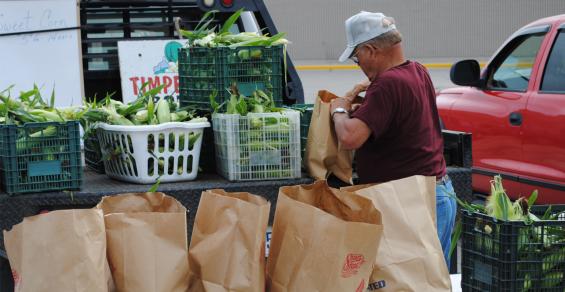Don’t forget to figure all of your costs before becoming a market vendor.
In Nebraska and across the country, farmers markets have seen a renaissance over the past decade — with the number of markets growing, and existing markets increasing their number of vendors.
In 2022 in Nebraska, there were 90 farmers markets. That’s down from 100 in 2019, but up from 2010 when there were only 74. Many of the new markets, says Margaret Milligan, program coordinator for Buy Fresh Buy Local Nebraska, opened in rural parts of the state.
Milligan encourages new market vendors to do their research ahead of time before jumping in.
“Each farmers market is different in terms of mix of vendors, number of customers, policies and sales potential,” she says. “It’s important to visit markets, and speak with market organizers and vendors before signing on as a vendor. Find out if there is a niche for your product, and think about how you will distinguish yourself from other vendors.”
Consider costs
“Does it make sense financially?” Milligan says. “Consider the costs of adding direct marketing to your farm operation. Depending on the farm and its goals, you may be vending at multiple farmers markets a week, or you may just do one local market. Whatever the case may be, you’ll need to consider costs like labor, transportation, storage, equipment, market fees and, possibly, insurance.”
It’s all about talking to people, Milligan says. “Going to farmers markets is answering questions and having an attractive and friendly display.”
You need to know if interacting with the public energizes you or drains you, because that is a crucial component of marketing in this way. “Farmers markets are also a community of vendors who help make it happen every week,” Milligan says.
Ask yourself if working with other people appeals to you.
Rewards of the vendor
While there are many considerations, there are also rewards. “Farmers markets are great starting places to incubate businesses,” Milligan says. “The cost of becoming a market vendor is relatively low when compared to opening a brick-and-mortar store — making markets accessible options for producers who are just starting out. We’ve seen a number of farms start at market, develop a following and reputation, which they build upon in other opportunities like retail stores, brick-and-mortar shops or online subscription programs.”
As opposed to selling everything wholesale, vendors get premium retail prices. “Keep in mind that the flip side of retail prices is that you have to figure in the labor, transportation and equipment needed for selling at a farmers market,” Milligan says. “But it’s a great way to meet people face to face, which is so important in getting repeat customers and word-of-mouth recommendations. The farmers markets are a good way to get your product into the kitchens of people and get your name out there.”
Learn more at buylocalnebraska.org.





